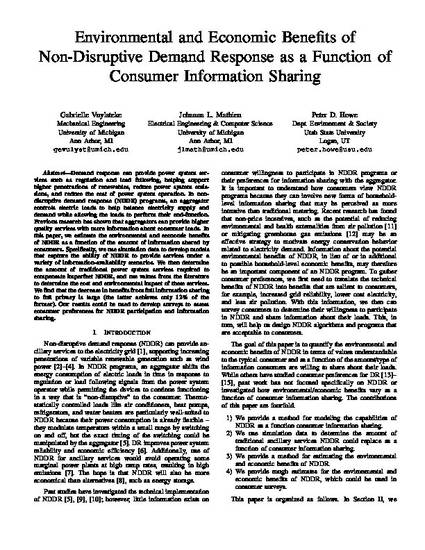
Contribution to Book
Environmental and economic benefits of non-disruptive demand response as a function of consumer information sharing
North American Power Symposium
(2015)
Abstract
Demand response can provide power system services such as regulation and load following, helping support higher penetrations of renewables, reduce power system emissions, and reduce the cost of power system operation. In non-disruptive demand response (NDDR) programs, an aggregator controls electric loads to help balance electricity supply and demand while allowing the loads to perform their end-function. Previous research has shown that aggregators can provide higher quality services with more information about consumer loads. In this paper, we estimate the environmental and economic benefits of NDDR as a function of the amount of information shared by consumers. Specifically, we use simulation data to develop models that capture the ability of NDDR to provide services under a variety of information-availability scenarios. We then determine the amount of traditional power system services required to compensate imperfect NDDR, and use values from the literature to determine the cost and environmental impact of these services. We find that the decrease in benefits from full information sharing to full privacy is large (the latter achieves only 12% of the former). Our results could be used to develop surveys to assess consumer preferences for NDDR participation and information sharing.
Disciplines
Publication Date
2015
DOI
https://doi.org/10.1109/NAPS.2015.7335134
Citation Information
Peter D Howe. "Environmental and economic benefits of non-disruptive demand response as a function of consumer information sharing" North American Power Symposium (2015) Available at: http://works.bepress.com/peter_howe/43/
